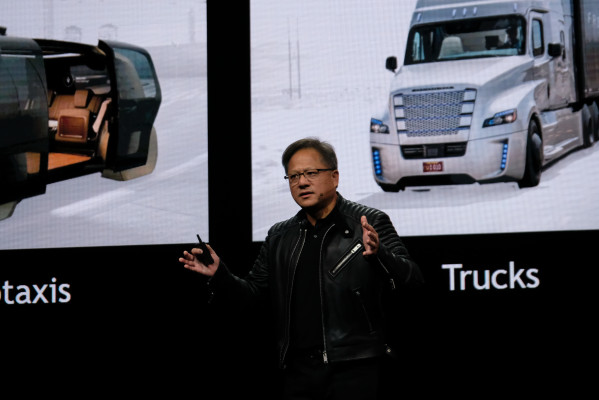
While Uber makes use of Nvidia hardware in its own self-driving automotive technology, it does not employ Nvidia’s Drive autonomous computing platform, which includes the GPU-makers own real-time sensor fusion, HD mapping and path planning. Nvidia CEO Jensen Huang shared this information today during a Q&A session attended by reporters at the company’s GPU Technology Conference in San Jose.
“Uber does not use Nvidia’s Drive technology,” Huang said. “Uber develops their own sensing and drive technology.”
Huang also reiterated comments made during an earlier Q&A that Nvidia ceased its own testing on public roads (its fleet comprises only about 5 or 6 vehicles in total at any given time, the company points out) out of an abundance of caution, and simply because it’s good engineering practice to pause and reflect when a new variable is discovered in any engineering problem.
The Nvidia CEO also clarified that Nvidia stopped its testing only “almost a day or two” after the accident occurred, as soon as “the news became clear to us,” and not only when news broke publicly earlier this week that its testing program had been suspended.
“If there’s an incident that happened that is a new piece of information that you can learn from, you should pause and learn from it,” Huang added. “I think everybody in the industry should – there’s no question in my mind, that everyone in the industry should pause to look at the situation, learn from it. Pause, just take a pause.”
Others running self-driving test programs on public roads, including Toyota Research Institute, have also paused, but some, including Waymo and Intel, have instead publicly declared that their own systems wouldn’t have failed where Uber’s did in this instance, and have continued their own testing programs on public roads.


